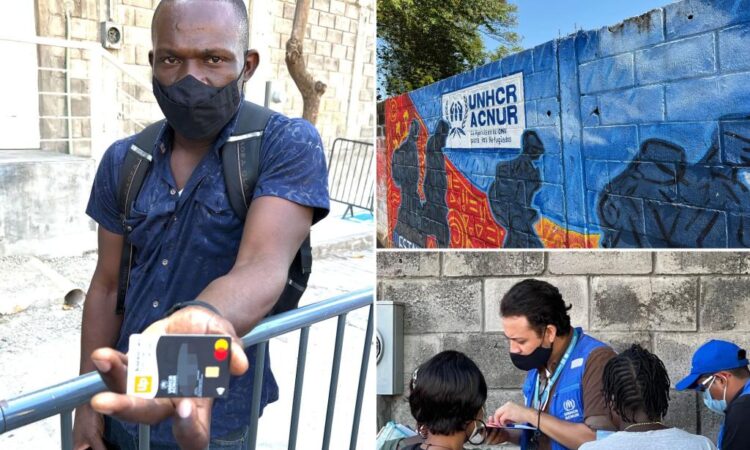
In 2021, early on in America’s historic border crisis, I wrote that the United Nations was abetting the problem by handing out debit cards and cash vouchers to aspiring illegal border crossers on their way north.
One outraged group of 21 border security-minded lawmakers pitched a bill that would require the United States, the UN’s largest donor, to turn off the taxpayer money spigot.
H.R. 6155 never caught fire, though, in no small part because “fact checks” from outlets such as the AFP claimed that the UN was doing no such thing.
Those fact checkers lied.
The UN’s just released the 2024 “Inter-Agency Coordination Platform for Refugees and Migrants from Venezuela” (R4V for short), a planning and budget document for handing out $1.6 billion in 17 Latin America countries.
It confirms the UN, with the helping hands of 248 named non-governmental organizations, is indeed giving debit cards to illegal migrants — funded, in large part, by US taxpayers.
Despite the R4V plan title naming Venezuelans as recipients of this aid operation, the document’s fine print (footnote on page 14 and paragraph on page 43, for instance) says the largesse goes to “all nationalities” and “multiple other nationalities.”
The documents clear up any mystery about what the UN and NGOs are doing on the migrant trails and leaves no room for supposedly debunking “fact checks.”
In a nutshell, the UN and its advocacy partners want to spread $372 million in “Cash and Voucher Assistance (CVA),” and “Multipurpose Cash Assistance (MCA)” to 624,300 immigrants who in-transit to the United States during 2024.
That money is most often handed out, other UN documents show, as pre-paid, rechargeable debit cards but also hard “cash in envelopes,” bank transfers, and mobile transfers the U.S. border-bound travelers can use for whatever they want.
This is only one part of much broader UN hemisphere-wide vision that aims to spend $1.59 billion assisting about three million people in 17 countries who emigrated from home nations.
The UN report predicts northern migration will continue to increase in 2024. It blames “xenophobia” in Venezuela for why people want to leave, among other factors.
Then it does, finally, tag the real culprit: Biden administration policies that created “newly established opportunities for regular pathways to move to the United States of America.”
The only expression of apparent concern about supporting people clearly intending to break US law shows up on a page depicting a map with the thin red line of a migration route leading to the US border at about El Paso.
Someone took the trouble to add a footnote on that page noting that the map “does not imply official endorsement or acceptance by the UN.”
Despite no “official endorsement,” the UN is spending big to encourage such a journey.
So why hand out hundreds of millions of dollars as cash and services to hundreds of thousands planning to illegally cross that red line, when those nations don’t like or want it and must bear the political controversies of it?
“To support access to asylum procedures, migratory regularization activities, and socio-economic integration,” the plan says.
The money handout program “has taken on increasing importance,” it explains elsewhere, because it gives growing numbers of immigrants “the flexibility to cover their expenses and needs they deem most urgent, increasing their dignity and autonomy.”
Over the past three years, I have visited UN waystations featuring long lines of US-bound immigrants applying for aid to clipboard-wielding workers handing out cash cards and other goodies, from Reynosa and Monterrey in the north of Mexico to Tapachula in the far south.
The RV4 plan calls for divvying out most of the cash, cash equivalents, and vouchers to migrating immigrants in Colombia and Ecuador.
The plan calls for 24 NGO partners to give money to 95,000 in Colombia and 59,000 in Mexico.
Some of the so-called transportation assistance is for local cab rides to stores or doctor’s appointments.
But the UN agencies also know that aid will facilitate “increased onward movements” for 105,000 immigrants in Colombia, 25,000 in Brazil, 13,000 in Panama, and 3,700 in Mexico, to name a few places.
With the United Nations and NGOs as fronts, the United States is paying for its own border crisis. It’s a truth that can’t be “fact checked” away.
Todd Bensman is a senior national security fellow at the Center for Immigration Studies.
Load more…
{{#isDisplay}}
{{/isDisplay}}{{#isAniviewVideo}}
{{/isAniviewVideo}}{{#isSRVideo}}
{{/isSRVideo}}






